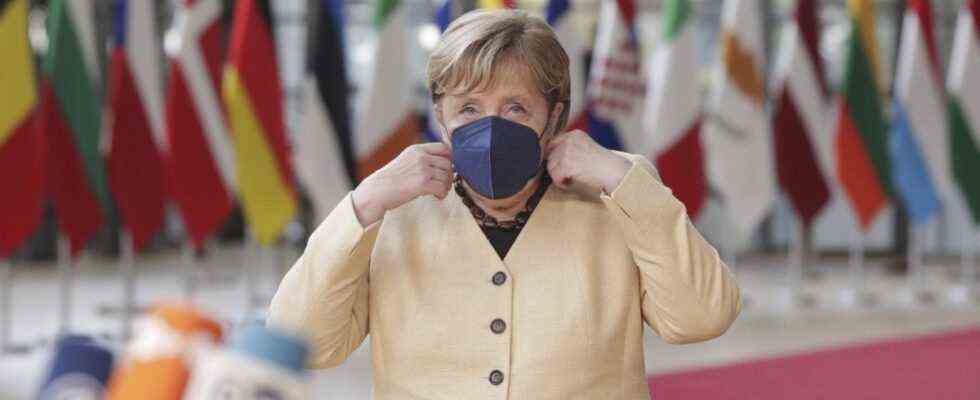There is always a serious concern to be heard when speaking of the new German government in Brussels. And this concern bears the name Christian Lindner. Many ask whether the man will really become finance minister. The FDP chairman is seen as the embodiment of German arrogance and German greed in dealing with less affluent countries in Europe.
And then there is great hope when people talk about the traffic light coalition in Brussels, which also has a name: Christian Lindner. He should slow down the southern and eastern Europeans and ensure that the stability criteria are not weakened even more, that no further joint debt programs are launched at the expense of savers in western and northern Europe.
Of course, that’s too much of the honor for a man who is very aware of his importance anyway. But nobody knows how the head of the German traffic light men and women will deal with the different expectations that are placed on a German government. What does Olaf Scholz want? He should declare himself very soon after his election as Chancellor, because Europe urgently needs leadership and modernization.
Everyone is clear about the diagnosis. But about the consequences?
The 27 have to break away from the rock tip of the USA, have to become militarily more independent, have to make progress with digitization, have to find a common language on the subject of migration, have to become world market leaders in matters of climate protection and take away people’s fear of the change that goes with it is. And they have to exemplify their basic values to the world – freedom, democracy, human rights. Otherwise the EU will very soon be wiped out and broken down into its individual parts by the great powers USA and China and the great great Putin. Surprisingly, there is agreement in EU circles on this brutal diagnosis. One would just have to draw conclusions.
French President Emmanuel Macron has set a framework with his call for “strategic autonomy”, as has EU Commission President Ursula von der Leyen with her Green Deal. Now it is up to the Germans to play their part. Merkel’s method has been exhausted. Monuments will be built to the Chancellor for how she held the EU together during all those nights of crisis; even if she leaves behind the huge dispute object Nord Stream 2. But it has never shown the EU a way into the future. So how much is the new German government willing to invest in the European Union? It’s about money, but also about a lot more.
The EU cannot be held together with sanctions
The EU will have to incur more debt if it takes its own goals seriously. Even a finance minister, Lindner, will not be able to ignore the realization, and even a finance minister, Robert Habeck, is likely to come up against limits. Angela Merkel proved that it is worth investing in Europe when she paved the way for the Corona reconstruction fund. The billions that are now being distributed generate many times more interest.
They stabilize the European economy and help modernize it. You can reconcile southern Europeans who have suffered under the German austerity policy with the EU. In the Eastern European countries, the billions not only show people the benefits of a common European policy, but also help to put governments on hold that do not adhere to European values. The Polish government will have to wait for its tranche as long as it doesn’t stop subjugating the judiciary. Money for values, a sharp sword that Viktor Orbán must also fear. And yet that alone cannot hold the EU together.
Angela Merkel rightly insists that the real problem cannot be solved by punishing Poland or Hungary. Should the European Union continue to pursue its founding idea of the “ever closer union”, an ever closer integration in more and more political fields, for which there are probably most supporters in Germany? Or should the nation states come into their own again? The question will probably still occupy Europe when the traffic light coalition is already history. The British have made their decision, with known consequences, which is why no country is threatening to leave the EU anymore. But the skepticism towards “Brussels”, the European centralism that destroys national values, has not disappeared. Especially in Eastern Europe, populists take advantage of this skepticism. And that’s why it could be a good idea if the new German Chancellor didn’t leave for Paris straight away after his election, but (even if that hurts now) flies to Warsaw first.
A real new start in German European policy would be …
Olaf Scholz could signal that, like Merkel, he recognizes Germany’s responsibility towards Eastern Europe. He would thus counteract the impression created by the populists that Eastern Europeans are second-class Europeans, and thus perhaps also help the opposition. The conversation with the rulers would offer the opportunity to issue warnings and to threaten with penalties in questions of the rule of law. It is imperative that he insist that the Polish government treat the refugees on the border with Belarus decently. With this topic in particular, Scholz could also show that he recognizes unpleasant realities.
Together with Poland, eleven other European countries have just drawn up a paper calling for the eastern border of the EU to be “physically” secured, i.e. with walls or fences. There is even already a debate in the EU about legalizing “pushbacks” in certain cases. In Germany, meanwhile, some still believe that they can implement a European migration policy based on green standards, if only one really wants to. “Illusion” is far too weak an expression for that.
German illusions, German life lies. The great European Angela Merkel leaves her successor with some inherited burdens. As for the one called Nord Stream 2, to cut this pipeline to Putin would be a real new start in German European policy.

